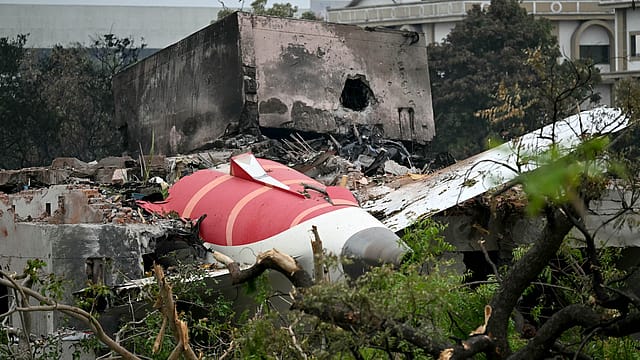Kin of Air India crash victims sue Boeing, Honeywell
ADVERTISEMENT

Aerospace giant Boeing and fuel control switch maker Honeywell have been sued by the families of four passengers who died in the Air India crash in Ahmedabad on June 12.
In a lawsuit filed in a Delaware court, the plaintiffs have alleged that the crash resulted from faulty fuel switches that could be turned off inadvertently, shutting down fuel supply immediately after takeoff.
The lawsuit refers to a 2018 Special Airworthiness Information Bulletin (SAIB) issued by the U.S. Federal Aviation Administration (FAA) that suggested, though it was not required, that operators of various Boeing models, including the 787, check the locking mechanism of the fuel cutoff switches to make sure it couldn't be unintentionally altered.
London-bound AI-171, a Boeing 787-8 Dreamliner, burst into a fireball 32 seconds after take-off from Ahmedabad, killing all but one of the 242 people on board and several others on the ground.
The crash, marking the first hull loss for a Boeing Dreamliner, prompted urgent safety checks by India’s aviation regulator. The Directorate General of Civil Aviation (DGCA) ordered Air India to undertake immediate technical inspections of all Boeing 787-8 and 787-9 aircraft fitted with GE Aerospace’s GEnx engines. It also intensified surveillance of maintenance protocols and airworthiness procedures for all wide-body aircraft operating in India, in addition to a special audit to strengthen aviation safety.
January 2026
Netflix, which has been in India for a decade, has successfully struck a balance between high-class premium content and pricing that attracts a range of customers. Find out how the U.S. streaming giant evolved in India, plus an exclusive interview with CEO Ted Sarandos. Also read about the Best Investments for 2026, and how rising growth and easing inflation will come in handy for finance minister Nirmala Sitharaman as she prepares Budget 2026.
The DGCA also issued an advisory to Indian airlines operating specific Boeing aircraft models, instructing them to conduct mandatory inspections of the fuel control switch locking mechanism.
Preliminary findings from India’s Aircraft Accident Investigation Bureau (AAIB) suggested that both engines stopped receiving fuel because the switches controlling fuel flow had moved into the “cutoff” position early in the flight.
